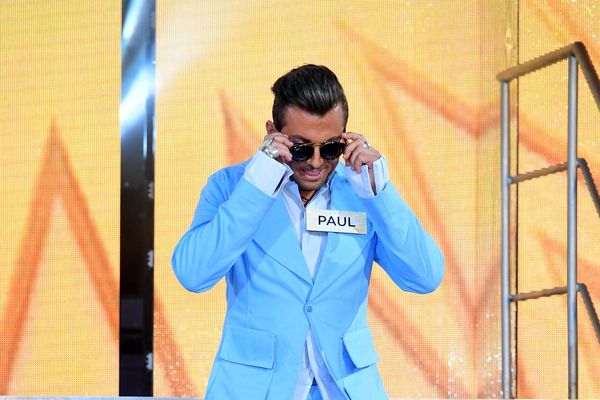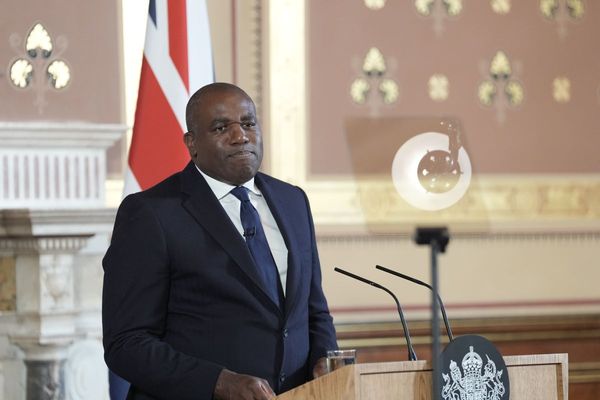Fifteen falls ago, a college football team played 11 games in 11 different cities, because its city, like the team itself, was drowning.
Hurricane Katrina devastated New Orleans in 2005. A deluge of floodwater overtook the campus and the city. Many players and coaches lost their homes. But Tulane University's football team still played its season. The emotional toll on these players and coaches _ the mental stress and fatigue _ was like another overwhelming storm, this one invisible.
I think about those players occasionally _ I was a reporter covering the team for the New Orleans newspaper. And I've thought about them a lot during this pandemic _ so many current athletes, all at once, dealing with mental health issues they didn't anticipate. And for some athletes, this is in addition to mental health issues already part of their makeup.
For people in the sports world _ and, really, the world world _ the stress from seasons ceased and dreams derailed and futures uncertain and a virus looming can be too much for one person to psychologically navigate. This is the time to encourage people to seek help. To encourage courage. This is not the time for people to fall back on stigmas about being "weak" for dealing with mental things. This is not the time to make someone feel bad about seeking psychological help. This is not the time to suppress feelings. These are unprecedented times. Give yourself a break. And be there for those who need a break.
"You get your ankle taped because it's a little weaker, not because you aren't a strong person, but because your ankle needs some help," said Janet Oberle, St. Louis University's senior associate athletic director who oversees student-athlete wellness. "So, if your brain needs help, get some help, and it's no big deal."
At SLU, just like at Mizzou and other institutions, resources are available for athletes, be it someone to talk to or videos detailing coping mechanisms for mental stress.
"I think what was interesting with this (pandemic), we weren't as able to predict what the issues might be," Oberle said. "And then you had students who really couldn't even predict what they were struggling with. ...
"One of the most important things that we can tell you is that we care about you. We tell our students that so constantly, that you're not alone, and that we care about you. And that if you need something, we're here to help you. And I think that feels very different (than from previous generations). But I think from a mental health standpoint, that there's nothing more important that we do than to tell people that they're not alone."
During these coronavirus times, high-profile athletes such as Michael Phelps and Kevin Love have spoken publicly and unashamedly about dealing with depression, about talking to counselors or doctors or the listeners in their lives. From little leaguers to big leaguers, stress is stress. And to have a pandemic shut down the sports world means so many people are dealing with so many different things, the one common denominator being that it's all tough stuff.
There's the runner who trained for a marathon that was canceled, the college basketball player who didn't get to play in the NCAA Tournament, the NHL player whose team was in first place and playing great. The high school senior who played a spring sport, and worked hard throughout the summer and fall of 2019, into the winter and early spring of 2020 ... just to face the realization that their final game had already occurred, almost a year ago as a junior.
At SLU, Oberle and her colleagues work tirelessly to provide resources for athletes. There have been hurdles. Some Billiken athletes have moved back to multi-generational homes where mental health has a stigma. Whereas on campus, the athlete took advantage of talking out feelings, at home "those barriers go up," Oberle said. During team Zoom meetings, SLU coaches and administrators have made a point to educate athletes about handling stress.
Another issue is athletes unable to get to the gym for their routines _ "working out is a clear coping strategy for a lot of our students," Oberle said. "So adding a lot more stress and strain on, and then taking away one of the key things that they have as an outlet? It's difficult. ...
"And I think for some of our students, they're not just managing their own stress and strain. At home, now they're managing the stress and strain of their younger siblings trying to get home-schooled, or of a grandparent who lives in the home or if their parents lose a job. I mean, I think the quantity of mental health stressors (has grown)."
That 2005 Tulane team was supposed to be pretty good. The team finished 2-9. Being a college athlete is stressful enough _ then to have a historic storm uproot you from your normal? And to play a season, while uprooted and based at Louisiana Tech, 300 miles away from New Orleans, and also travel for the weekend games?
"Losing (stinks), definitely," Tulane's top receiver, Preston Brown, said at season's end. "But in my mind, we're always going to be champions for even being able to endure all this and go through the season _ honestly."
The athletes of 2020 will become champions of endurance, even if they don't play one game. But right now, many of them are enduring that invisible storm.







